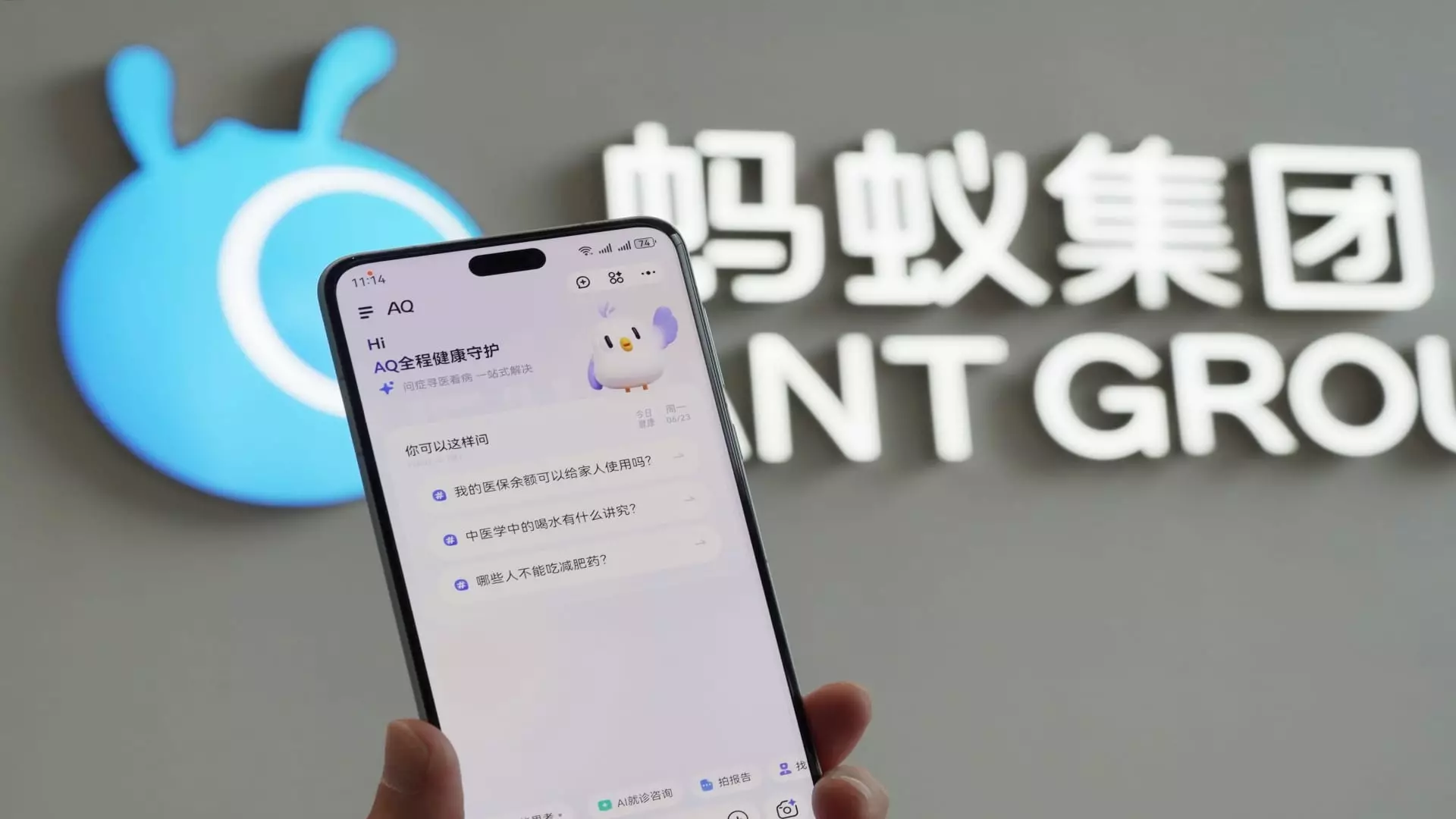The dawn of AI technology has reshaped various industries, yet it is in healthcare where its potential can yield transformative impacts. Ant Group, a subsidiary of Alibaba, has recently unveiled a smartphone application named AQ, which stands for “Answer Your Question.” The introduction of this app underscores a pivotal shift, where artificial intelligence integrates deeply into healthcare services for the 1.4 billion people in China.
Zhang Junjie, the general manager overseeing this healthcare initiative, emphasized the ambition behind AQ. The app allows users to engage with AI avatars modeled after real medical specialists, providing a preliminary layer of consultation before accessing necessary medical care. This initiative is particularly relevant in a country where the healthcare system is often overwhelmed, with patients frequently facing extended wait times to see a physician. The potential of AQ extends beyond mere convenience; it embodies a broader societal change in how healthcare is accessed, interpreted, and delivered.
Advantages of Digital Healthcare
The reality in China is defined by an impressive convergence of technology and healthcare resources. With over 5,000 hospitals and nearly a million doctors accessible through AQ, the app has already run pilot programs with foreigners living in China, revealing a strong push towards enhancing user experience for demographics beyond just local citizens. The expectation that this technology could be globalized hints at Ant’s aspiration to climb the ranks on a world stage heavily influenced by healthcare imperatives.
In addition, the established infrastructure within China provides fertile ground for this innovation. With a national health insurance system covering over 95% of the population and around 70% of hospitals utilizing digital record-keeping systems, AQ stands to benefit from a well-prepared environment. However, one must critically evaluate whether increased access to healthcare through technology equates to improved outcomes.
The Dangers of Dependency on AI
The bright prospects presented by AQ and similar applications cannot obscure the looming dangers that accompany such technological dependencies. Emerging AI capabilities can misinterpret medical queries, potentially leading users astray. While Ant has developed a system that can refine its responses based on large language models, what happens when the technology falters? The prospect of misdiagnosis through an AI medium, whether due to flawed algorithms or inadequate data, raises valid concerns about the extent to which we ought to rely on algorithms to make health-related decisions.
The ethical implications are daunting, especially when considering how digitalization might strip away the human touch so vital in healthcare. There is immense value in human interactions that software cannot replicate, emphasizing the call for a hybrid model where technology complements rather than completely replaces human healthcare providers.
Implications for the Future of Healthcare
The future of healthcare, especially within a rapidly digitalizing landscape, demands careful navigation. With Ant Group’s AQ app setting a precedent, the spotlight now shines on others within the sector, including U.S. giants like Microsoft and Amazon, who are also delving into AI-driven healthcare solutions. The marketplace remains fiercely competitive, and while collaboration between different health AI platforms might spur innovation, it also raises the stakes for privacy and misinformation.
As the healthcare domain continues evolving at lightning speed, one must question whether existing regulatory frameworks are keeping pace. China has an opportunity to democratize healthcare through accessibility, yet it also bears the responsibility of ensuring safety and reliability in these systems. For those in the center-left, the perpetual balancing act between innovation and ethical restraint becomes crucial. The ambition to utilize advanced technologies must harmonize with a commitment to safeguarding the fundamental elements of healthcare: trust, accountability, and empathy.
In an age where technology heralds the future, the hope is to integrate these advances with a keen sensitivity towards their broader implications. Platforms like Ant Group’s AQ could lead the way toward a revolutionary healthcare framework, provided it garners the right safeguards and ethical considerations. The stakes are high, but the potential is equally immense.

